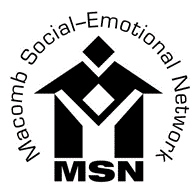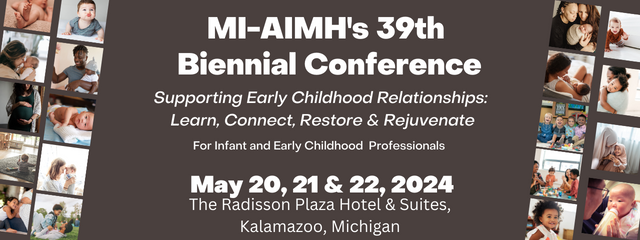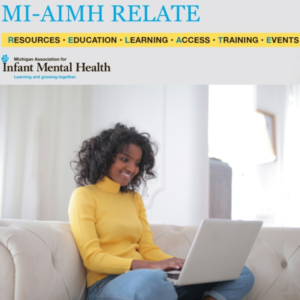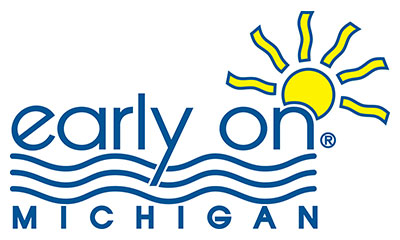Registration is OPEN!
2020 Conference: Explorations in Development
The Intersection of Sensory Processing Disorders & Infant/Early Childhood
Mental Health
Sensation is the raw material mediating the formation of the earliest relationships, contributing to the regulation of emotion and behavior and the construction of knowledge-all key components of Infant Mental Health. The manner in which children register, process and interpret sensation, contributes significantly to how they perceive and appraise reality and consequently how they are apt to behave. If a child’s registration, processing and interpretation of sensory information is faulty because of a sensory processing disorder (SPD), then her/his behavior is likely to follow “perception” and be at-risk for being “out-of-synch”. The preschooler with tactile hypersensitivity may misperceive a benign brush or accidental bump-in-a-shuffle as aggressive and lash out in accordance with his appraisal of the situation.
This case-based presentation discusses the developmental links between sensory processing and the organization of the key components of infant mental health- relationship formation, regulation and the ability to learn. The clinical presentation of SPDs will be examined through a psychological lens and address, in-depth, the ways they can mimic and/or contribute to mental health disorders of infancy and early childhood. Interpreting behavior through the lens of sensory processing may dramatically alter professionals’ clinical reasoning and understanding of behaviors that appear on the surface to be primarily psychological in origin. Further, the sensory processing perspective can reveal parent-friendly “ports-of-entry” that support families to be more open to help and to participating in intervention.
The sensory processing/SPD knowledge base is Occupational Therapy driven but will be interpreted through a psychological lens with respect to scope of practice with applicability across disciplines. Interventions pertinent to classroom and clinic that are therapist (OT)-supported as well as those that include sensory strategies and environmental supports and modifications for young children with sensory challenges will be presented and discussed in-depth with participant participation.
Dates: Tuesday, October 13 & Wednesday, October 14, 2020
Times: 9:00 am – 12:00 pm EST (both days)
Access: This training will be offered virtually through Zoom.
*Only registered attendees that have paid the training fee will receive the Zoom link for the training. Be careful to enter your email carefully and correctly as that is where the Zoom link will be sent.
Speaker: Gilbert M. Foley, Ed.D., IMH-E serves as Consulting Clinical Psychologist at the New York Center for Child Development (NYCCD) in New York City and Clinical Co- Director of the New York City Early Childhood Mental Health Training and Technical Assistance Center (TTAC): a collaboration between the NYC Office of Mental Health, NYCCD and McSilver Institute, New York University. Click for Full Bio → Foley, Gil.Bio
Learning Objectives – Attendees will be able to:
- Describe how sensory processing contributes to the development of early relationships, regulation and learning
- Identify the essential features and “red flags” of sensory processing disorders
- Discuss how SPDs contribute to and sometimes mimic mental health disorders
- Formulate alternate hypotheses through an SPD lens for explaining a range of behavior and relational challenges in young children
- Provide parent-friendly explanations of the contributions that SPDs may contribute to behavior and relationship challenges
- Apply sensory strategies and environmental supports and modifications to improve sensory function and support a child’s sensory needs within a specific environment
Day 1 Agenda
9-9:15 Introductions
9:15-10:15 Sensory Processing and the Sensory Systems
10:15-10:30 Break
10:30-11:45 Sensory Links to Development & Sensory Processing Disorders
11:45-12:00 Questions and discussion
Day 2 Agenda
9:00-10:15 SPDs and Mental Health
10:15- 10:30 Break
10:30-11:00 Communicating with Parents and Intervention
11:00- 11:30 Case Presentation
11:30-12:00 Questions and discussion
Continuing Education Information – 6.0 training hours (3.0 per day): are included with registration fees
Social Work – 6.0 Michigan SW CEU’s Pending
IMH Endorsement® – Will count towards the requirements for the MI-AIMH Endorsement®
Licensed Professional Counselors – NBCC Hours – Please note that this training does not carry NBCC clock hours.
Registration Information:
To register, please complete the form below.
Registration Tips – You will need the following information to register:
- Contact information including cell phone # and email address
- Licensed Social Workers – need your license number in order to secure CEU’s
The last day to register is October 8, 2020.
Registration Fees: CEUs are included
Regular Registration: $80.00 (fee to attend both days)
Student Registration: $40.00 (fee to attend both days)
*Students will be required to email tmartinez@mi-aimh.org with a copy of their current student ID/schedule.
Cancellation policy: Notice of cancellation must be submitted in writing to tmartinez@mi-aimh.org no later than 4 days prior to the event for a refund to be issued.
IMPORTANT: Agency checks should be made payable to MI-AIMH. Please indicate the names of all staff attending the training. If names are not included on check payment, MI-AIMH cannot guarantee that the check will be attributed to the correct training or participant(s).
Mail checks to: MI-AIMH, ATTN: Tiffanie Martinez, 13101 Allen Road, Southgate, MI 48195
For registration questions, contact Tiffanie Martinez at:
tmartinez@mi-aimh.org or 734-785-7705, Ext. 7617
Hosted by: MPSI, Infant Mental Health Program at WSU; MPSI, Healthier Urban Families Outreach Program at WSU; Metro-Detroit Association for Infant Mental Health; MI-AIMH; Macomb Social Emotional Network and Great Start Collaborative of Macomb County.












 13101 Allen Road
Southgate, Michigan 48195
tel: 734.785.7705 x7194
fax: 734.287.1680
13101 Allen Road
Southgate, Michigan 48195
tel: 734.785.7705 x7194
fax: 734.287.1680





